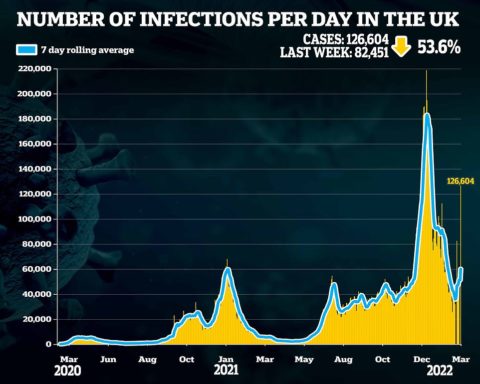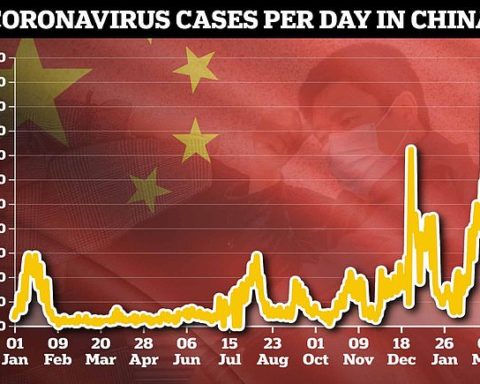The Commons voted by 484 to 76, a majority of 408, to keep powers in place untl the end of September. And Health Secretary Matt Hancock would not rule out a further renewal. He claimed that the laws – unprecedented in peacetime – “remain essential”. But he promised that he would propose renewing the legislation once again only if it was absolutely necessary.
He told MPs: “They are exceptional powers for the most extreme of situations.”
The six-month extension was approved, even though the Government roadmap envisages lockdown ending in June.
Rebel Tory MPs said that it was inappropriate to continue to give sweeping powers to ministers, as the country appears to be past the worst of the pandemic.
However, the move was passed easily with Labour’s support.
The measures let ministers shut pubs and detain individuals on suspicion of spreading the virus.
They also cut NHS red tape as well as permitting sick pay and furlough financial support.
Tory MP Sir Charles Walker believed ministers would try for another extension in six months: “Anyone who thinks it’s not inevitable is deluding themselves.”
Sir Graham Brady, chairman of the party’s backbench 1922 committee, also voted against extension and said: “It is important we make the case for a return to
normality and trusting people with their own lives”.
His senior colleague Mark Harper, chairman of the lockdown-sceptic Covid Recovery Group, had said he was opposed to the Act’s “very significant draconian powers” being extended for a further six months.
During the debate, Mr Harper said: “The controversial parts, the police powers to detain potentially infectious persons which have been used unlawfully on a number of occasions, it says
in (Mr Hancock’s) letter…that those are intended to be long-term powers.
“That is why so many of us are worried. These are extraordinary provisions, not for normal times, and they should be expired at the earliest possible opportunity.”
Boris Johnson had defended the pace of ending lockdown, saying it was the fastest safe way to freedom. He added: “The libertarian in me is also trying to protect people’s fundamental right to life.”
The Coronavirus Act came in to force in March last year at the start of the crisis.




